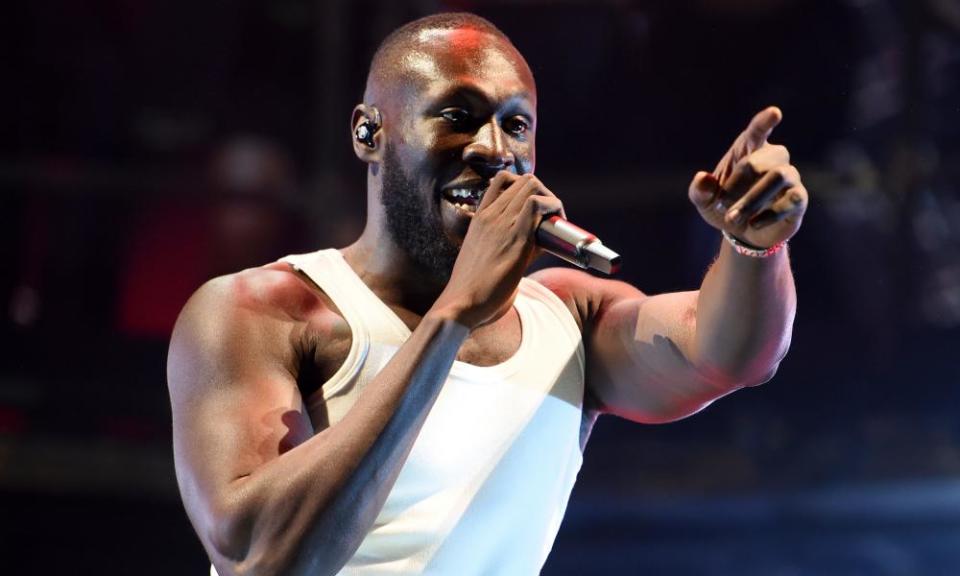Black music artists should call out racism within our industry. They’ve got the power

In the eight years I’ve worked in the music industry, career highs have been offset by instances of racism. I’ve often been confused with other Black people who work in the industry at events, meetings and panels – at a gig one evening, it happened three separate times.
For the first part of my career, I worked in the independent sector, which is not known for its diversity. My isolation as one of the few Black people working in this area was often explained away by my white counterparts: I’ve been told that Black people just don’t listen to alternative music, but this doesn’t explain why white people are overrepresented when working in Black music. When I am asked about my perspectives, I’m often then required to do the heavy lifting, as though structural racism is a problem that Black people should fix rather than the white perpetrators of it. When I was starting out in the industry – younger, more insecure about my race and attempting to get my bearings in a sea of white faces, my attempts to assimilate were often overwhelmed by a sense of otherness.
A recent study by Black Lives in Music concluded that the majority of Black music industry professionals in the UK experience racism, from racist language to instances of microaggression. The report distinguished between the experiences of music creators and music executives and found that their experiences differed, with 63% of creators witnessed direct or indirect racism rising among professionals to 73%.
These findings will be largely unsurprising for Black people like me working in music. I’m not trying to paint a picture of an industry that is always knowingly aggressive and violent. For the most part I enjoy my job, and though there may not be overt incidents of racism every single day, it is persistent and it’s widely felt by Black people working in music. This piles up, causing mental fatigue that minimises our ability to work at full capacity. A lot of that racism is implied or unsaid. While consciously most white people in the industry may not intend to be racist, instances of unconscious bias and other insidious forms of racism have prolonged effects on us – not just on our ability to succeed in our work, but on our mental health. Indeed, 36% of music executives believed that their mental health declined due to the racism they faced. An industry committing to anti-racism must be more aware of this.
The differing experiences of music creators and executives highlighted in the report speaks to an unsettling hierarchy. Black people – and especially Black men – who are creators experience a relative form of privilege that Black people working behind the scenes in music don’t have. Black creators are more often shielded from the worst forms of racism that others experience: since the artists are the ones making everyone money, white people are more likely to be deferential.
Would it be wrong to ask that these artists use their relative power to elevate us all? The report still shows that the effect of racism on creators is still high, so ultimately it’s on white folk to enact changes, but it’s interesting to note that many of the race equality initiatives set up in the wake of Blackout Tuesday, the call for the music industry to halt for a day in protest at the killing of George Floyd, were started by Black women, the demographic that the report found to suffer most from mental health issues and to be the most underpaid. The implications of this are enormous. If we want a music industry that is as diverse as its talent, we need to create an environment that isn’t hostile to its most undervalued workers.
Last week I hosted a panel at Wild Paths Festival called Anti-racism in the Music Industry – One Year On. An audience member noted that anti-racism movements have existed in the music industry long before Blackout Tuesday – how then do we know that recent efforts will actually produce lasting change? All of us on stage found it difficult to pinpoint exactly why this time felt different. We all agreed that it was partly because George Floyd’s murder, the Blackout Tuesday initiative and the waves of Black Lives Matter protests made the urgent issues they raised unavoidable during the isolation of the pandemic. It’s hard to know if there will be long-lasting change, and findings like the Black Lives in Music report make it hard for Black people in the industry to be optimistic.
But I get the sense that at no other point in the music industry’s history have Black people been able to speak directly to wider audiences about their experiences, particularly in the racism they’ve had to endure while making the music they love. Reports like Black Lives in Music are a step further to a greater understanding of those lives, and the work that needs to be done. Now it’s up to white people to help us implement the change the music industry desperately needs.
Michelle Kambasha works in the music industry

 Yahoo Movies
Yahoo Movies 